Jamaican Reggae Artists and Reggae Groups
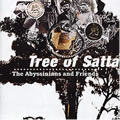
The Abyssinians
The roots harmony vocals trio the Abyssinians was formed in 1968 by founding members Donald Manning, Bernard Collins and Linford Manning. It was in 1969 with their release "Satta Massagana" recorded on Coxson Dodd"s Studio One label - a Rastafarian hymn based on the Ethiopian Amharic language, that launched them into the ranks of Reggae music greats. "Satta Massagana" became one of reggae"s most popular songs; becoming an anthem that was heard on the radios, in the dancehalls and in the churches of Jamaica.
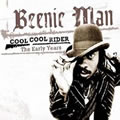
Beenie Man
Beenie Man was involved in the music industry from a young age when he won the Tastee Talent contest in 1980. Only one year later (1981), when he was eight years old, he recorded a single, "Too Fancy", with record producer "Junjo" Lawes. By 1983, Beenie Man was recording with heavyweight DJs, such as Dillinger and Fathead and released his debut album, The Invincible Beenie Man: The Ten Year Old DJ Wonder and the single "Over the Sea." After such a prodigious start the artist's career lost momentum in the middle of the eighties decade.
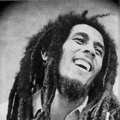
Bob Marley
In the year 1944, Captain Norval Marley married a young Jamaican girl named Cedalla Booker. On February 6, 1945 at two thirty in the morning their son, Robert Nesta Marley was born in his grandfather's house. Soon after Bob was born his father left his mother. He did however give financial support and occasionally returned to see his son.
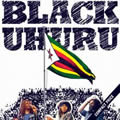
Black Uhuru
Black Uhuru was the leading second generation reggae vocal groups, and was formed in Jamaica in 1974 by Euvin "Don Carlos" Spencer, Rudolph "Garth" Dennis, and Derrick "Duckie" Simpson. These three grew up in the famed "Waterhouse" district of Kingston, Jamaica (a hot bed for reggae artists over the years). After a couple of years the group as it was originally known grew apart as Don Carlos went on to a solo career, and Garth Dennis went on to sing with another of the great Waterhouse group, the Wailing Souls.

Buju Banton
Buju Banton was one of the most popular dancehall reggae artists of the '90s. Debuting with a series of popular "slack" singles, which drew criticism for their graphic sexuality and homophobia, Banton converted to Rastafarianism and revolutionized dancehall by employing the live instrumentation and social consciousness of classic roots reggae. He first adopted the approach on his 1995 classic 'Til Shiloh, which raised hopes among his fans that he would become dancehall's great international ambassador, as Bob Marley had been for roots reggae.
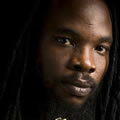
Bushman
Born Dwight Duncan, in the lush picturesque hill top village of Spring Garden, St. Thomas, Jamaica. He was raised as a Rasta since the tender age of two. Dwight attended the Lysson All Age School, where his music teacher noticed his potential for music and nurtured him in his developing stages. Dwight then went on to Yallas High School where he continued to shine musically as a member of the school choir, a member of the Yallas drum core, playing the bass organ, also participating in numerous school concerts. He was also a member of the New Testament Church of God Choir, where he earned the name Ark Angel.
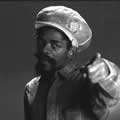
Cocoa Tea
Cocoa Tea was one of the few early dancehall stars to carve out a consistent, productive career as the genre evolved over the years. His cool–toned, laid–back vocals were perfect for sweet, smooth lovers rock, and gave him a distinct identity amid his more aggressive peers. Still, he was also capable of toughening up his sound on his cultural protest material, which was often sharply perceptive. Tea was born Calvin Scott on September 3, 1959, in Rocky Point, a small town in Jamaica's Clarendon parish.
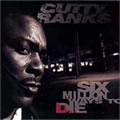
Cutty Ranks
Cutty Ranks replaced Shabba Ranks as the rough DJ voice in the Home T/Cocoa Tea triumvirate. Born back in 1965 in Kingston, Philip Thomas or Cutty Ranks, had been an important voice on sound systems during the 80s. By the 90s he was ready for bigger things. Thanks to the production skills of Donovan Germain, Cutty's sharp as a rock lyrics and voice scored consistantly in the Dancehall.
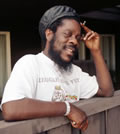
Dennis Brown
One of Jamaica's most beloved and prolific artists, the late Dennis Brown has left behind a slew of classic songs and myriad hits, a rich musical legacy born of a career that spanned over 30 years. Born Dennis Emmanuel Brown in Kingston, Jamaica, in 1957, his childhood home virtually destined him to a future in the music industry. He grew up on Orange Street, the heart of the island's music scene, with most of the major recording studios a mere stone's throw away. As the stars and future hitmakers paraded by day and music pumped out of the studios, the child could not help but be entranced.
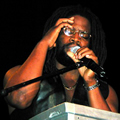
Denroy Morgan
At a time when uplifting, positive roots reggae is becoming an endangered musical species, Morgan Heritage are allowing those who fret about the future of roots reggae to rest easy. Morgan Heritage's music is infused with a sense of spirituality handed down to them by their father, reggae star Denroy Morgan. The brothers and sisters known as Morgan Heritage don't drive around in a red, green, and gold school bus, but you could call them Jah Partridge Family.

Gregory Isaacs
In the 1970s, he emerged as one of the most prolific and popular recording artists in Jamaica. He released a number of self-produced singles on his African Museum (JA) label, formed in 1973 with Errol Dunkley. Much of Isaacs' output reflected the "conscious" themes of Roots Reggae, but Isaacs was equally adept at interpreting more mainstream Lovers Rock material. His hits include My Only Lover, Sinner Man and Mr. Cop, recorded at Lee Perry's Black Ark Studio.